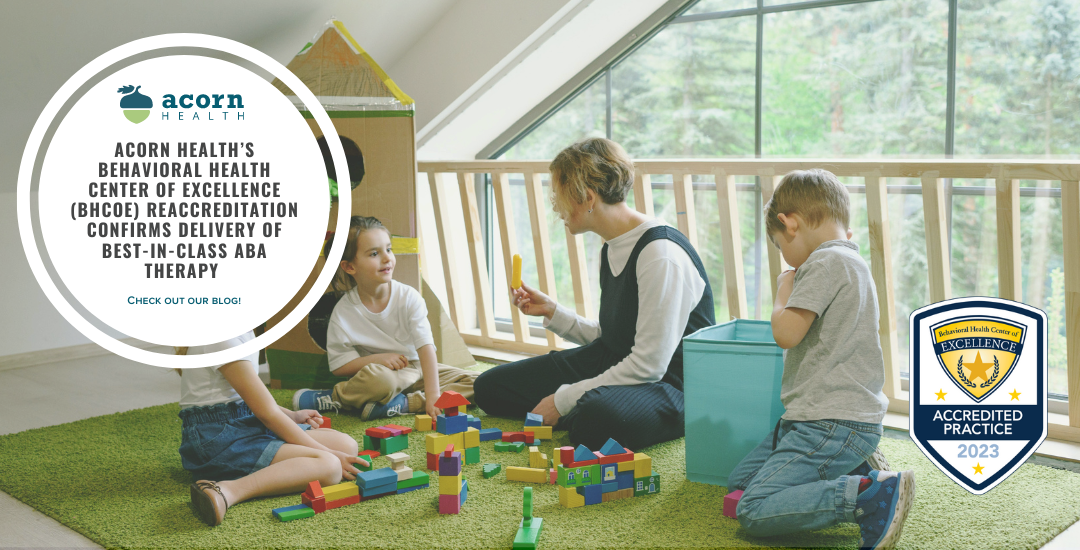
October 9, 2023
Applied Behavior Analysis (ABA) therapy continues to evolve as researchers and scientists learn information about the practice of ABA therapy and about autism spectrum disorder (ASD) in general. Over time, leaders in the field have continuously improved to apply the principles of ABA therapy using more… Read More

September 6, 2023
It’s becoming more common for people to consider a new career field later in life. After a decade or two in one industry, people are beginning a second act, many times inspired by their own life experience. Suzanne Threet is one of those people. Read More

August 9, 2023
The back-to-school season can be an exciting time of the year for families. There’s a lot of positive energy and possibility surrounding teachers, new friends, new school supplies, and so much more. For families who have children with autism spectrum disorder (ASD), as… Read More

July 25, 2023
In early July, Acorn Health earned full accreditation for all of its 71 centers from the Behavioral Health Center of Excellence (BHCOE), extending its current accreditation for two more years. This marks Acorn Health’s third continuous accreditation since it was founded in 2018. This independent… Read More

July 20, 2023
Severe problem behavior is defined as a significant emotional or behavior issue, which may include self-injury, destruction, and aggression. These types of behaviors can be challenging for families to navigate, and extremely common for individuals with autism. Because access to preferred items and activities are… Read More

July 3, 2023
What could be better—it’s the middle of summertime, friends and family come together, and great food abounds at cookouts and neighborhood gatherings. But for families who have loved ones with autism spectrum disorder (ASD), this season can be tricky to navigate. Many of the aspects of this… Read More

June 30, 2023
As we all transition from cooler winter weather to warmer spring and summer months, there’s a lot to look forward to. Whether your family prefers backyard barbecues, baseball games or splashing at a nearby pool, it’s hard not to get excited about summertime activities. Read More